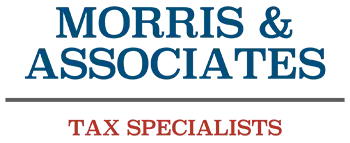In the pursuit of fair tax practices, the IRS is proactively addressing tax-related concerns among large corporate entities, partnerships, and high-income individuals. Historically constrained by budget cuts, the IRS is now implementing robust measures to bridge gaps and navigate the complexities associated with tax evasion tactics employed by high-net-worth individuals.
- Prioritizing High-Income Cases:
- The IRS has intensified efforts to address tax compliance issues among high-income individuals, focusing on those with incomes exceeding $1 million and recognized tax debts surpassing $250,000.
- Demonstrating early success, the IRS collected $38 million from over 175 high-income earners, initiating contact with an additional 1,600 taxpayers in this category. Over 900 cases have been assigned to revenue officers, resulting in a total recovery of $520 million.
- Addressing Partnership Balance Sheet Discrepancies:
- Identifying ongoing discrepancies on balance sheets involving partnerships with over $10 million in assets, the IRS has undertaken an initiative to address potential non-compliance.
- In response to discrepancies in partnership returns, the IRS sent 480 compliance alerts by the end of October, emphasizing the importance of accurate reporting.
- AI-Driven Audits of Large Partnerships:
- Recognizing the complexities of large partnerships, the IRS launched the Large Partnership Compliance (LPC) program, leveraging Artificial Intelligence (AI) to focus on high-risk issues.
- Collaborating with data science and tax enforcement experts, the IRS selected 76 of the largest partnerships for examination, covering diverse industries with assets exceeding $10 billion on average.
- Foreign-Owned Corporations Transfer Pricing Initiative:
- The IRS is intensifying compliance efforts on U.S. subsidiaries of foreign companies to ensure equitable taxation on profits earned from U.S. activities.
- Compliance alerts have been sent to over 180 subsidiaries, urging them to fulfill U.S. tax obligations and encouraging self-correction.
- Expansion of the Large Corporate Compliance Program:
- The Large Corporate Compliance (LCC) program, under the Large Business & International Division, utilizes data analytics to identify noncompliance among large corporate taxpayers.
- With an expansion plan in 2024, including 60 additional audits, the program targets corporations with average assets exceeding $24 billion and annual taxable income around $526 million.
- Partnership Self-Employment Tax Initiative:
- Emphasizing the importance of proper reporting and payment of Self-Employment Contributions Act (SECA) taxes, the IRS is focusing on wealthy individual partners in state law limited partnerships.
- Over 80 audits have been conducted, and a November 2023 Tax Court opinion reinforced the IRS position on SECA tax for actively participating partners.
This comprehensive approach reflects the IRS’s commitment to fostering tax transparency and fair practices, aiming to create a conducive environment for high-income individuals and corporations to meet their tax obligations.
The IRS has provided some examples of cases closed since the Inflation Reduction Act passed:
- In January 2024, two individuals found themselves facing substantial prison sentences – 25 years and 23 years, respectively. Their charges included conspiracy to commit wire fraud, aiding and abetting the filing of false tax returns, and money laundering. This was all tied to their involvement in promoting a deceptive tax shelter scheme centered around syndicated conservation easements.
- Moving to December, a Swiss Bank took a step toward resolution by entering into a Deferred Prosecution Agreement (DPA). The bank agreed to pay approximately $122.9 million to the U.S. Treasury. Their involvement extended to aiding U.S. taxpayer-clients in evading taxes through undeclared accounts. The bank held 1,637 U.S. Penalty Accounts from 2008 to 2014, with aggregate maximum assets of about $5.6 billion in January 2008. Clients collectively evaded around $50.6 million in U.S. taxes.
- In another case another individual faced a sentence of 10 years and 10 months, coupled with an order to pay over $130,000 in restitution. In a separate case, someone else received a 102-month prison sentence and a restitution order exceeding $2.5 million. A third individual got a four-year prison term and a similar restitution order, all connected to their involvement in a RICO Conspiracy related to cyber intrusion and tax fraud. Their actions involved the dark web, where they purchased server credentials for the computer servers of accounting and tax preparation firms nationwide.
- In the same month, a different individual got a 28-month federal prison sentence and a restitution order exceeding $470,000. Their offense was filing a false tax return while working as a money mule for romance scams. The individual operated bank accounts to collect proceeds from the schemes and transfer money to both themselves and others overseas.
- Lastly, an individual was sentenced to 57 months in prison for failing to pay over $1.35 million in taxes related to their operation of several restaurants in the Washington, D.C. area. The tax evasion involved concealing assets and manipulating business records, including purchasing property under the name of a nominee entity and making false entries in the books to hide personal purchases through business bank accounts.
Get Compliant and Get Tax Relief
Morris and Associates are experts when it comes to helping individuals and companies find tax relief in Georgia but can help no matter where you live or whatever tax questions you have. Contact us to help with your taxes and possibly even reduce the amount that you owe.







